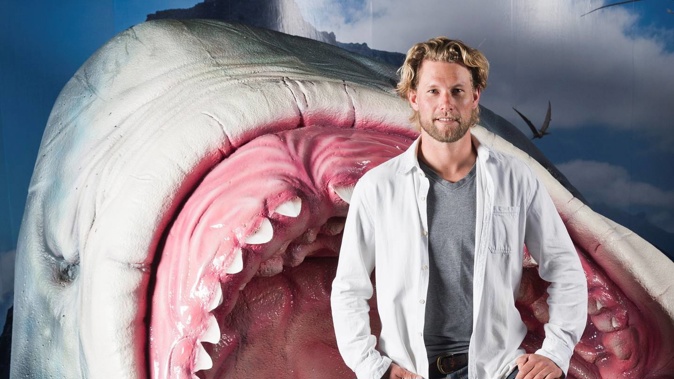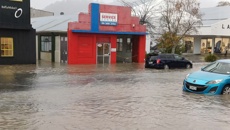
Tairua shark scientist Dr Riley Elliott is a leading light in New Zealand's great white shark research programme.
He has been featured on Discovery Channel's annual Shark Week and is an author and sought-after speaker.
His citizen science "sponsor a shark" project aims to upskill people's knowledge of sharks and educate them about the much-maligned apex predator.
The La Nina weather pattern is set to impact New Zealand's oceans again this summer.
Last year's sea temperature was above average when compared with 2020/21, sending more people plunging into the surf.
Recorded sightings of sharks were also higher than normal, prompting many to speculate the warm ocean was attracting more sharks to coastal areas like the Coromandel and Western Bay of Plenty - potentially putting water users at risk.
Last summer, sightings of juvenile great white sharks, and the unfortunate deaths of two of the fish, most likely from becoming trapped in set nets, brought the much-feared shark back into the public consciousness.
When asked for his opinion on whether water temperature had led to a swell in shark numbers, or that the warmer weather had put more people out in the ocean in closer proximity to sharks that are always there, and capturing them on cameras, Elliot said the situation "was a mixed bag of variables".
He agrees "climate-induced change" has altered the home range of sharks, and he thinks the " big uptick in whites" can be attributed to the "pushing of habitat distribution from around Australia - its a very fluid environment".
/cloudfront-ap-southeast-2.images.arcpublishing.com/nzme/6KXEH6BDL6B6ES5QCE7L42HZ2Y.jpg)
Recorded sightings of sharks were also higher than normal last summer. Photo / NZME
However, he tempered this by saying that an "increase of people getting in the water naturally leads to more interactions". Such interactions do have the positive effect of providing data-driven eyewitness reports.
The Sustainable Ocean Society is a not-for-profit established by Elliott and a group of friends who collectively use their skills to help fundraise for projects that protect and create awareness around the ocean.
Elliot has raised over $200,000 towards a satellite-tagging programme for blue sharks in New Zealand waters, a species that featured in his thesis written on their spatio-temporal patterns in movement, behaviour and habitat use.
In the next couple of weeks, Elliott will outline an exciting new project in conjunction with a government department to study and tag sharks and allow users to collate shark sightings through an app, providing scientists and the public with information on sharks thereby aiding the further study of the population.
Despite another La Nina forecast for 2023, the odds of water users bumping into a shark on their boogie board remain low. Elliott says people and sharks will "always continue to co-exist" but he hopes his research will "empower people to make decisions about where they want to swim".
- Jim Birchall, HC Post
Take your Radio, Podcasts and Music with you









